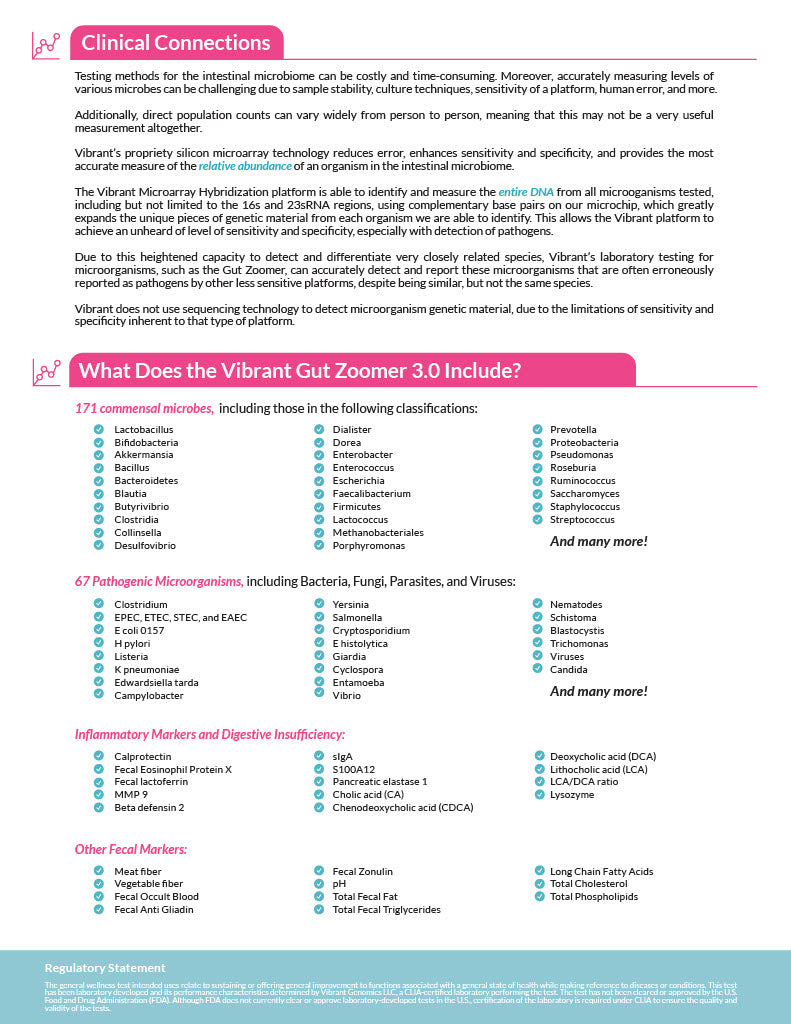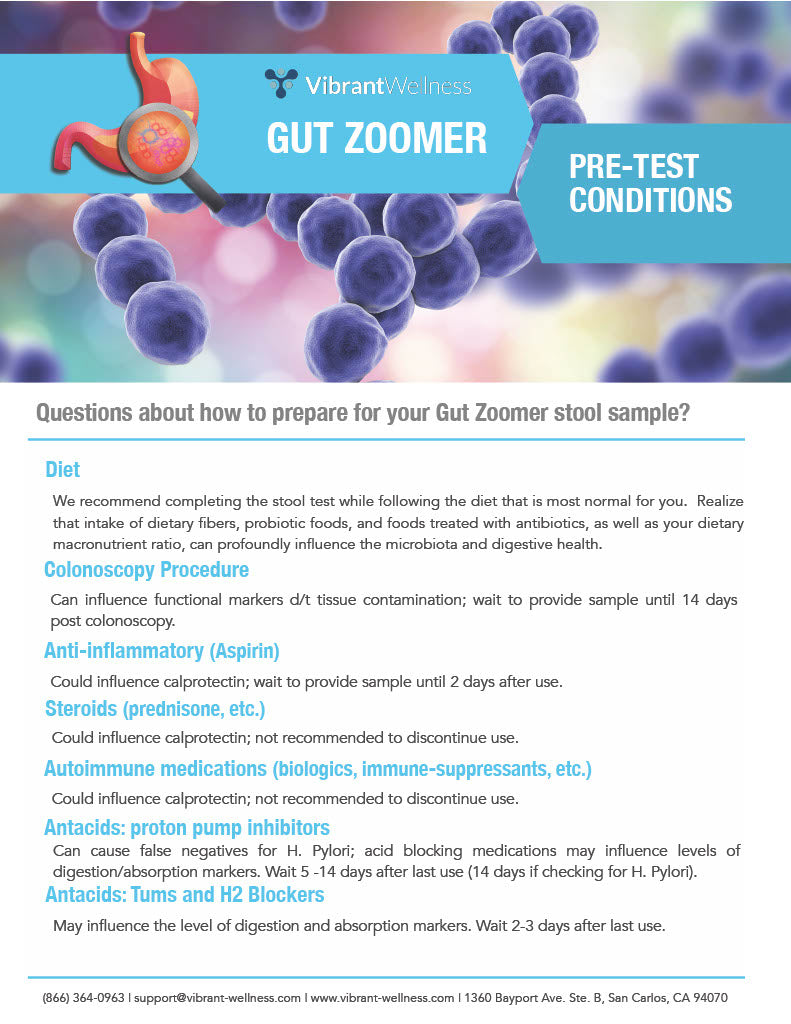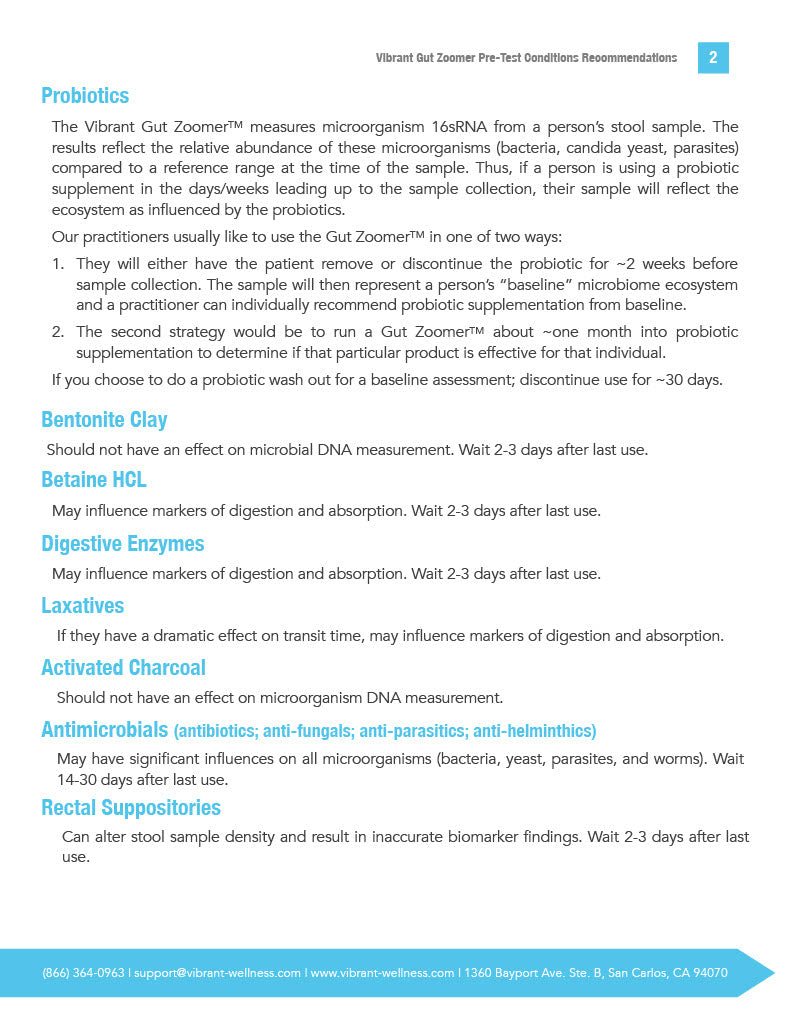



ADD DETAILS TO BUY
The gut microbiome resides in your large intestine and is host to more than 1000 species of bacteria that perform certain important functions from shaping the immune system to influencing metabolism of nutrients to fortifying the intestinal mucosal barrier (gut barrier).
It is important to know the abundances of the bacteria that symbiotically live in the human gastrointestinal tract because imbalances in the gut microbiome may lead to gastrointestinal symptoms, skin conditions, autoimmune disorders, immune system imbalances, and multiple inflammatory disorders.
Vibrant uses a proprietary microarray hybridization technology platform, using the whole-genome data to simultaneously detect over 300 microorganisms with 99% specificity and 98% sensitivity, unheard-of levels of accuracy in the detection of pathogenic microorganisms. Because Vibrant does not use sequencing technology, which is time-consuming and prone to high level so inaccuracy, the Gut Zoomer is the most accurate microbiome test available to aid discerning healthcare providers in the assessment and treatment of gastrointestinal disorders.
The Gut Zoomer report provides you with actionable recommendations that include potential risks for:
- Intestinal permeability (SCFA producing bacteria and tight junction integrity)
- Intestinal disorders (IBS and IBD related bacteria)
- Small Intestinal Bacterial Overgrowth (SIBO)- related bacteria
- Cardiovascularhealth (inflammationinfluencing and TMAO-related bacteria)
- Autoimmune health (celiac, Crohn’s, rheumatoid arthritis, etc)
- Neurological health (MS, Parkinson’s, and more)
- Liver diseases (cirrhosis, hepatitis, cholangitis, and more)
- Metabolic health (Obesity, diabetes, etc)
- Nutrition (Vitamin production, oxalate metabolism)
- Microbiome and hormone connections (Beta-glucuronidase and Beta-glucosidase)
- 67 pathogenic bacteria
- 24 Intestinal parasites
- 8 viruses
- 5 Fungal or yeast species
- 5 worm species
- 6 antibiotic resistance genes measured
and newly added additional markers of functional digestive status:
- Calprotectin
- Pancreatic elastase 1
- Bile acids
- Cholic acid
- Chenodeoxycholic acid
- Deoxycholic acid
- Lithocholic acid
- Acetic acid
- Butyric acid
- Propionic acid
- Valeric acid
- Total SCFAs
- ß-glucuronidase
The test performs the most comprehensive analysis available of your intestinal microbiomeecosystem from a simple one-time stool collection. This test examines the complex and intricate relative abundance of each species or genus measured, in relation to the rest of the ecosystem, to provide a unique perspective on the gut microbiome and its connection to disease and inflammation.
The functional digestive analytes aid healthcare providers in determining if deficiencies in digestive enzymes, bile, or other critical metabolites are root causes of gastrointestinal inflammatory symptoms.




